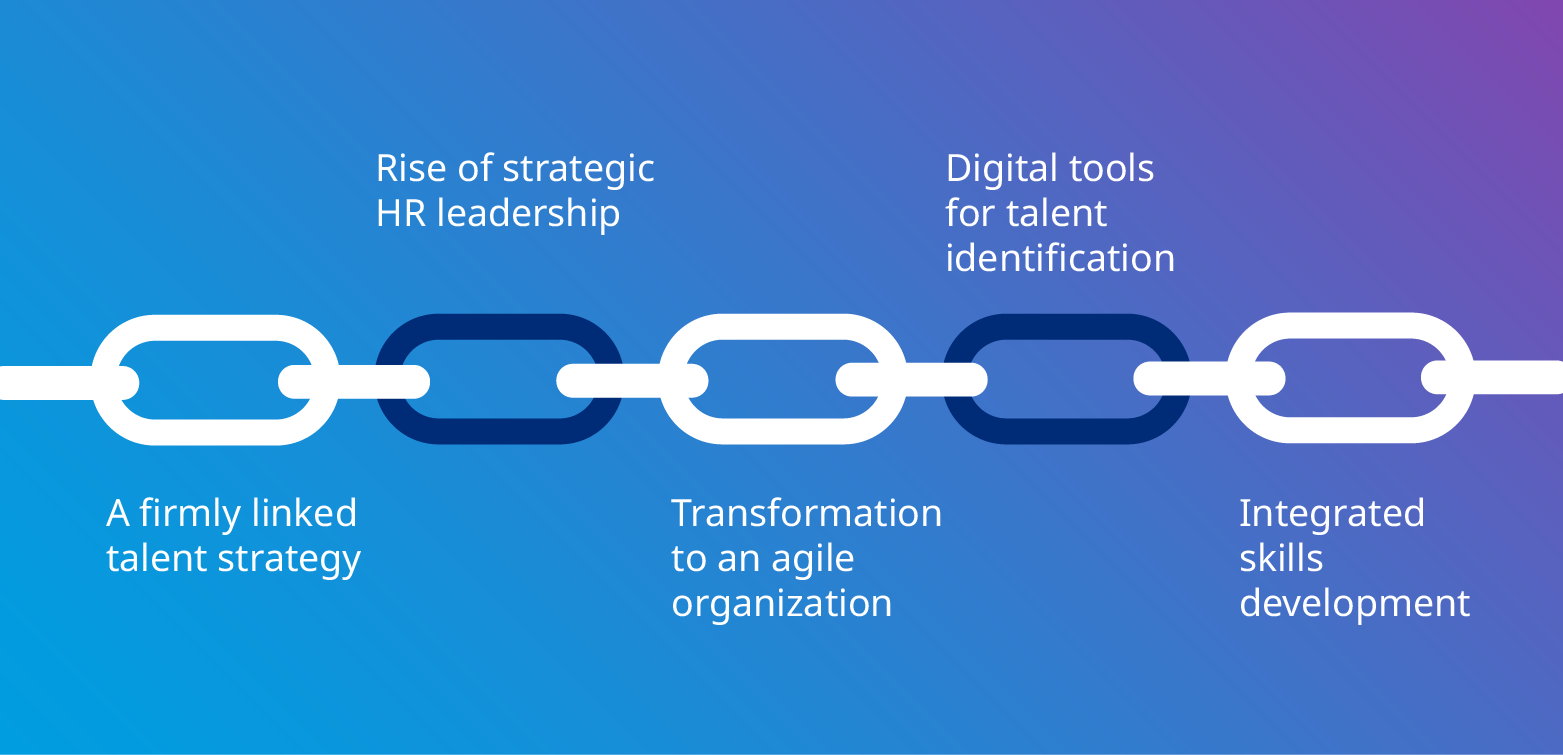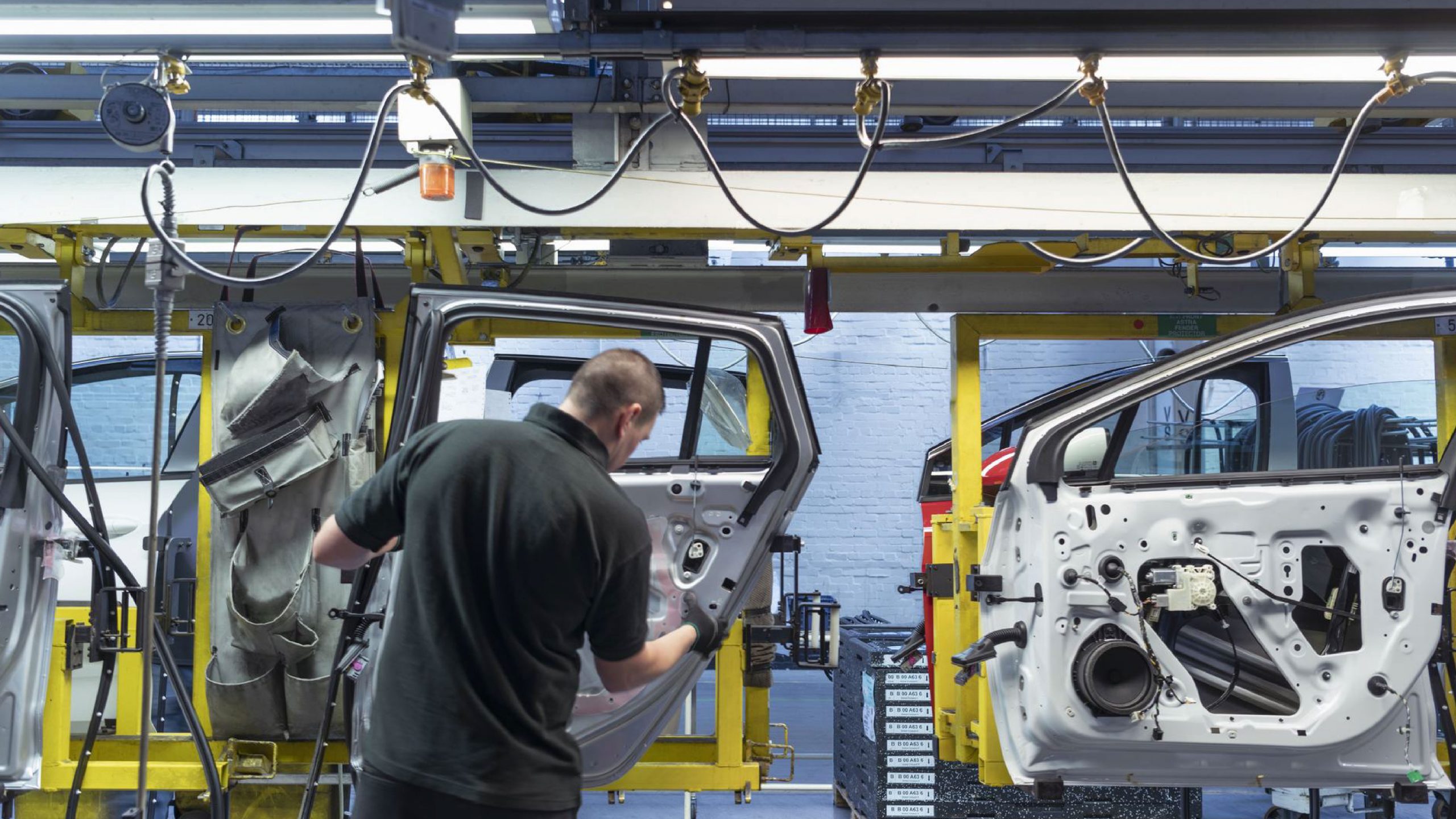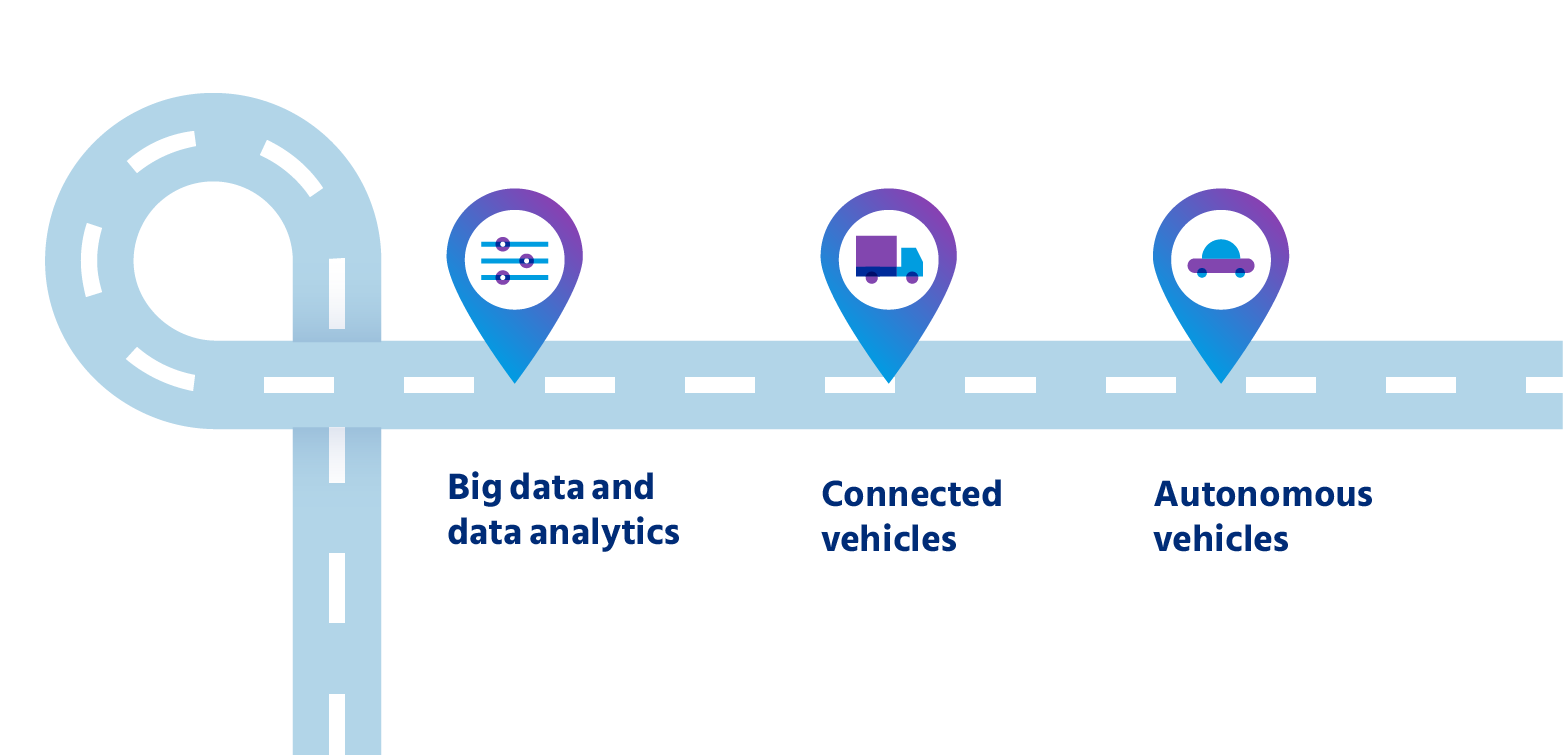A Mercer | Mettl client wanted to identify high-potential employees who could successfully move to departmental head positions. For this, we conducted a comprehensive sensing exercise to identify key competencies and related behaviors for the job role. Virtual Assessments and Development Center (VADC) by Mercer | Mettl was utilized for online and offline assessments. This included tools like personality, behavioral, and cognitive assessments to gauge behavioral traits, attention to detail, and emotional stability of employees.
It helped the client determine key strengths and development areas of the current workforce to identify successors for important business roles.
In a similar manner, identifying best practices to shortlist, attract, nurture, and retain top talent in organizations helps them thrive and succeed in the coming years. A summarized explanation of practical steps for businesses to become high-performance organizations and attract leading talent are:

A firmly linked talent strategy
Business leadership, including CEO, CXO, and CHRO, working together helps create a firmly linked plan combining strategic talent management requirements. Preparing talent hiring and development strategy based on these factors adds a value proposition for existing employees and potential hires, giving a competitive edge to the automotive businesses.
Rise of strategic HR leadership
Technological advancement has increased the strategic involvement of HR leaders in business success. Automotive suppliers require HR leaders to ensure the correct deployment of employees who effectively complete their core tasks and fulfill their responsibilities as future leaders.
The rise of strategic HR leadership would also mean adopting strategies utilized outside the industry to empower people’s managers. For example, talent management and development assessments to ensure accuracy and reliability in automotive recruitment and internal movement of employees.
Transformation to an agile organization
Transforming to an agile organization helps automotive suppliers align cross-functional and empowered teams. These teams foster a culture of rapid learning, cross-functional training, and peer learning cycles. This model helps build passionate teams, improves decision-making, and uncovers organizational potential.
Digital tools for talent identification
Digital tools ensure the collection of valuable data during workforce planning, sourcing, selection, onboarding, and L&D. Data collected at every stage of talent acquisition, or L&D, helps reach granular details of organizational capabilities and strategic needs.
Mercer | Mettl’s suite of assessments at the talent selection stage identifies skilled professionals according to the organization’s competency framework. These tools ensure transparency, process reliability, accuracy, and efficiency.
Assessments are accompanied by real-time reports that highlight value-generating processes, candidate experience, and candidate relevance in a job role.
Integrated skills development
Integrated skills development ensures talent retention and drives business success in the long term. Upskilling and reskilling helps employees identify their current strengths and weaknesses, work on specific goals, and improve future relevance in the industry.
Reskilling and upskilling tools by Mercer | Mettl help HR leaders highlight skills gaps and understand employees’ learning agility and training effectiveness. For instance, skills gap identification discloses skills required for varied job roles in the organization. Building these skills allows the business to thrive and increase personal employee growth.









 Behavioral Competencies
Behavioral Competencies Cognitive Competencies
Cognitive Competencies Coding Competencies
Coding Competencies Domain Competencies
Domain Competencies































Would you like to comment?